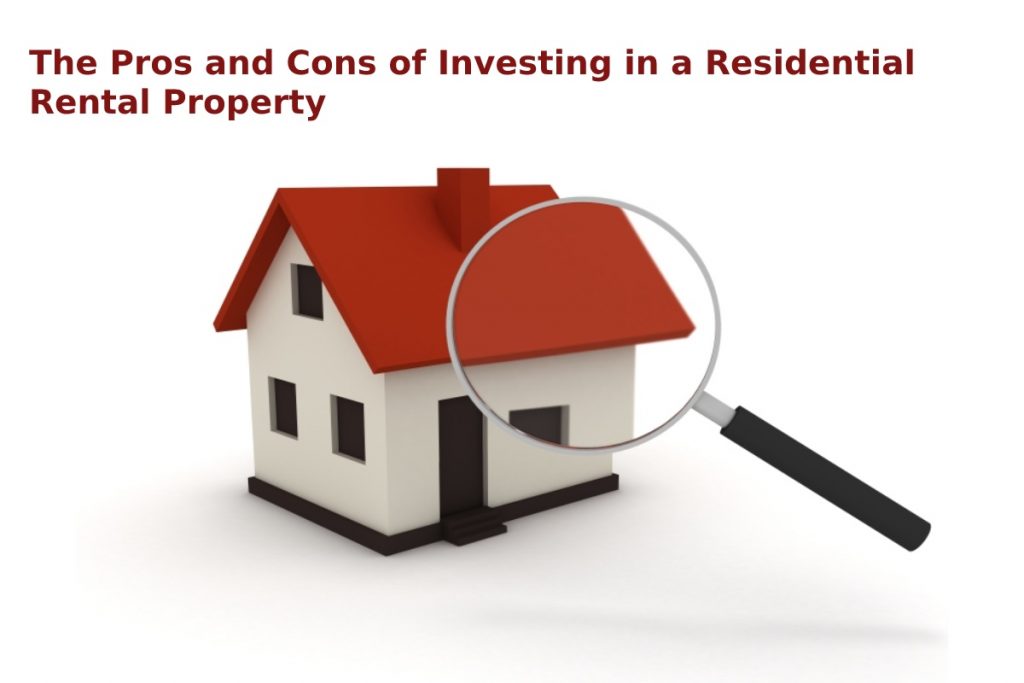Residential real estate is a sector of the real estate industry that focuses on properties that house anywhere from one to five families. Many people are jumping on the trend of buying residential properties to rent to others to make a profit. While this is certainly doable, there are still some risks, as well as rewards, involved with investing in residential properties.
Pro: You have the Ability to Earn Passive Income.
Some people look for any alternative to buying a single-family home because they don’t want to take on the responsibilities of it but for others, generating passive income is one of the main reasons why many choose to invest in a residential rental property. The idea of having money come in every month without taking on another job is very desirable. You’re more likely to see greater returns with residential properties such as duplexes and quadruplexes because then you will have more tenants to collect rent from. You can also own and manage multiple real estate properties, further increasing the amount of passive income you can earn.
Con: The Possibility of Difficult Tenants.
In a perfect world, you would always get ideal tenants who pay their rent on time and never have any complaints. Unfortunately, that is not the real world and there is the possibility of renting to difficult tenants. They may not seem difficult at first but can surprise you later. This is why it is important to do thorough tenant screenings.
Pro: You can Purchase Certain Properties for a Low Price.
These “certain properties” are known as fixer-uppers, and they are considerably cheaper than your other properties on the market. Most of the time these fixer-uppers are older houses with a unique charm, so they are bound to catch someone’s eye. To make them even more enticing to buy and flip, some only need to have simple and fairly inexpensive repairs, such as installing new light fixtures, patching up and painting/wallpapering walls, laying down new flooring, and changing out kitchen cabinets.
Con: Not all “Cheap Properties” are Actually Cheap.
Mentioned above would be \”[p\the ideal fixer-upper. Unfortunately, this is not always the case when it comes to buying an older house and flipping it. More often than not, fixer-uppers require much more extensive renovations (cosmetic changes) and sometimes even remodels (structural changes). Most real estate property investors will tell you to avoid a fixer-upper if your goal is to flip it (make a profit off of it) because the repairs can end up costing you more money. However, it is possible to come across one that does not require expensive home improvements.
Pro: You’re able to Diversify your Investment Portfolio.
If you’re trying to build your investment portfolio, residential real estate (as well as other types of real estate) will help give some diversity to your investments. This is especially true if you have both single- and multi-family residential properties. Having investments in different types of properties better protects you from the ups and downs that come with the real estate market. It may not seem like it, but it’s considerably less risky to invest in different types of properties. There are even rental property loans you can learn about that can help with financing rental properties, specifically. For those interested in expanding their investment horizons beyond local markets, exploring international real estate opportunities through resources like InvestAsian.com can provide valuable insights and opportunities to diversify your residential rental property portfolio.
Con: Managing a Property can be Overwhelming.
Being the owner of a residential rental property, you are essentially the landlord. There’s the con of potentially having to deal with difficult tenants, but the tenants will not be your only responsibility. It will also be your responsibility to keep up with the maintenance of the property— whether it is being rented out by tenants or not. This can be particularly difficult if your rental property isn’t located in the same town or state as your primary residence. You do have the option to use a property management company, but because this is a service, it will cost you money.
There are many more advantages and disadvantages to investing in a residential rental property, and you must weigh out all of the costs and benefits for yourself. It also helps to be educated in the world of real estate and to even have a friend in the industry— whether it is another investor or an actual realtor.

